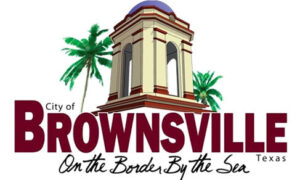 Eight city of Brownsville charter amendment propositions approved by voters in the May 1 election, including propositions having to do with term limits for elected city officials, were recommended by a seven-member charter review committee appointed by the city commission.
Eight city of Brownsville charter amendment propositions approved by voters in the May 1 election, including propositions having to do with term limits for elected city officials, were recommended by a seven-member charter review committee appointed by the city commission.
The last two propositions, 9 and 10, originated with the city commission itself. The approved amendments to the charter require cities, boards, commissions and other bodies formed by the city commission, including the city-owned Brownsville Public Utilities Board, to collaborate with the city commission to eliminate duplication of services, provide joint services, make administration more efficient and ensure quality service at the lowest cost in terms of fees and tax rates.
The wording of each amendment is essentially the same except in the case of Proposition 10 and BPUB, where the word “fees” is replaced by “utility rates.”
Collaboration has a nice ring to it, but how did it make it onto the ballot as a city charter amendment? City Commissioner At-Large “A” John Cowen Jr. said it’s essentially about getting everyone on the same page by enshrining it in the charter.
“It’s basically making it a charter mandate that we all need to work together in the best interests of the community,” he said. “The city and its component entities need to have collaboration. That’s probably something that was lacking in the past. At least my understanding is that before I was elected there was very little communication between the entities. Sometimes boards and commissions would be doing their own thing while the city commission would be expecting another.”
The propositions don’t alter any formal processes, and didn’t arise from any particular incident or event, but mandates “communication and collaboration,” Cowen said.
“That’s important in itself, because otherwise under the old charter the PUB would only be required to come to the commission for certain activities, such as bond financing,” he said. “There’s a limited scope where PUB actually needs to involve the commission. We are growing pretty aggressively and we need to be all on the same page. How do we make sure we’re doing what we need to be doing in all facets, and that we’re not operating in silos? That’s easy to do, and when there’s miscommunication the ball can get dropped.”
While BPUB has its own directors and CEO, the utility is ultimately answerable to the city commission, Cowen said.
“Yes, it does have a separate board that oversees the day-to-day operations and provides direction, but in my opinion at the end of the day the city commission has oversight over all PUB functions.”
BPUB was not involved in getting Proposition 10 on the ballot, though a spokesman noted that the charter amendment makes no changes regarding who is responsible for managing the utility, or to the management structure itself.




